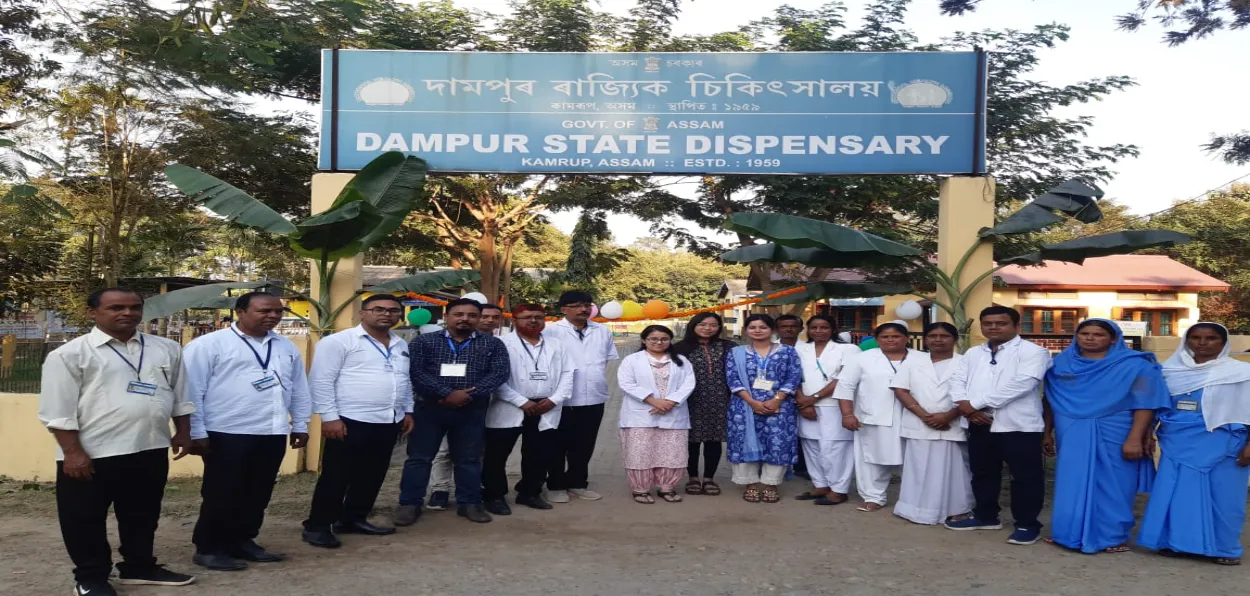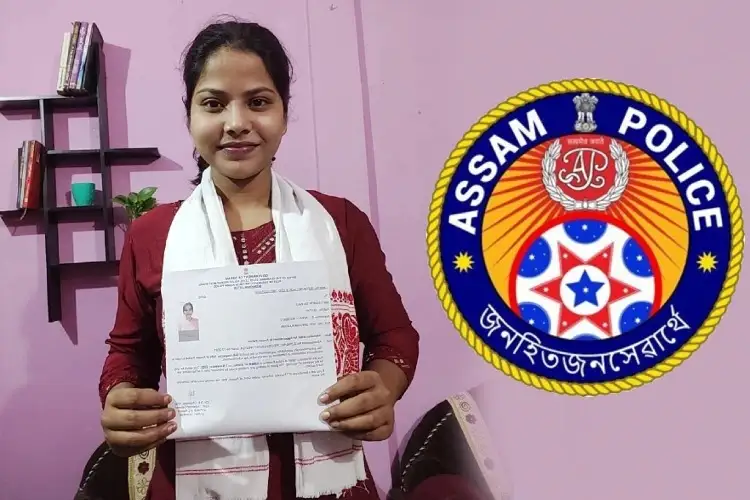
Daulat Rahman/Dampur
What is common among Akram Hussain Saikia, freedom fighter, Alhaj Badruddin Ahmed, software engineer, Hedayat Ali, Mount Everest conqueror, Aftab Hussain Saikia, former Chief Justice of Jammu and Kashmir High Court, Nurul Hussain, politician and former minister, Safiur Rahman Saikia, litterateur and former chief engineer of PHE, Talmizur Rahman, former deputy registrar of Gauhati High Court, Sumon Sahnaj, Assam Police official and Akhtara Saikia, well-known doctor?
All of them were born in Dampur, the largest indigenous Muslim-dominated village in Assam’s Kamrup district. The atmosphere in the village has inspired these individuals to achieve success. The truth is that the list of such individuals is quite long.
Dampur situated nearly 45 km away from the capital city Guwahati is inhabited by indigenous Assamese Muslims. Even though Dampur has a 100 percent Muslim population, it has broken many myths and stereotype concepts commonly associated with a Muslim village in India.
Unlike many Muslim villages in the country where the literacy rate is very low, nearly 90 percent of residents of Dampur are literate. Dampur Government Higher Secondary School has produced many brilliant brains that are currently excelling in different fields. There are four government high schools out of which one is for girl students, a private senior secondary school for science stream, nine government primary schools, one government high madrassa school, two jatiya vidyalayas (vernacular medium schools run on the line of English medium schools) and four private English medium schools in Dampur.

Sumon Sahnaj, Assam Police officer
Haidor Ali Saikia, former president of 67 No Dampur Gaon Panchayat told Awaz-The Voice that his village is always ahead in the field of education. He said that besides quality education being provided at the government-run high schools and primary schools, the private English medium schools and jatiya vidyalayas are preparing the present young generation to meet future challenges in the fields of academic and professional careers successfully.
Noted litterateur and former chief engineer of Public Health Engineering Safiur Rahman Saikia said that even before the independence of the country education was always a priority in Dampur. He said even girls never faced any discrimination and hassles in getting an education in Dampur.
Before India’s independence, education among girls of the Muslim community was a distant dream. Dampur was an exception at that time too. for example, forest ranger and freedom fighter Alhaj Badruddin Ahmed of the village had four daughters and he ensured that all his daughters got higher education. Education bore fruits and two of his daughters became teachers in government schools. Another became an Assam Government official.
A bride with guests at her wedding ceremony in Dampur
Another example of the spread of girls' education and empowerment in Dampur is Sumon Sahnaj who last year joined the Assam Police. When people slept, Sumon used to run in the darkness to realize her dream of joining an armed force. Her effort didn’t go to waste and finally joined the Assam Police.
In 1927 students of Dampur formed a platform designed as Dampur Chatra Sanmilani to create awareness for noble causes of the society and unite the younger generation irrespective of caste, creed, and religion. Every year Dampur Chatra Sanmilani organizes an annual convention where people from different walks of life participate and celebrate India’s unique diverse culture through songs and dances.
The people of this village run the Dampur Islamic Madrassa with their own financial and other logistical contributions. Haidor Ali Saikia, president of the management committee of the madrassa said apart from Islamic education the madrassa also imparts modern education to its students.
Students in their classroom in a private school of Dampur
“All Red Letter Days such as Republic Day and Independence Day and other historical events are celebrated at Dampur Islamic Madrasa with great enthusiasm. The management committee keeps a strict vigil to ensure that the madrassa is not being used by anti-social and fundamentalist forces,” Haidor Ali Saikia said.
There are 26 mosques in Dampur and every mosque, imams preach the message of peace and brotherhood.
The people of Dampur are very conscious about their health. The village has a state dispensary and two sub-centers where an adequate number of doctors, nurses, and paramedical staff are available. An adequate number of lifesaving and other essential drugs are available at the health centers.
Dampur has at present a population of 21,000 villagers and 45 percent of them are farmers. The village is self-sufficient in rice, other paddy, and vegetable production.
Syncretic culture and tradition are reflected in Dampur’s socio-economic life. Marriages in Dampur are mainly about Islamic customs but with some traditions common among Assamese Hindus closely entwined. The brides wear resplendent traditional Assamese dress- Mekhela chadors both in the nikaah as well as the reception ceremonies while the groom dons a sherwani and a paguri (turban) on the day of the nikah. This dress code can be attributed to the fact that when the Muslims first came to Assam, they married local Assamese women.
Students celebrating Independence Day at the islamic Madrasa of Dampur
Former Chief Justice of Jammu & Kashmir High Court Aftab Hussain Saikia said that he always feels nostalgic whenever one talks of Dampur. “My roots are in Dampur and the formative years of my life were spent in this village when I imbibed many human values. My forefathers actively participated in India's freedom struggle,” Justice Saikia who was also the founder chairperson of Meghalaya Human Rights Commission said.
ALSO READ: Dhanuri: Kayamkhani Muslims are raising memorial to martyrs' memory in the village of soldiers
Hajo in Kamrup district is known worldwide as an oasis of communal harmony for it is a popular pilgrimage center for Hindus, Muslims, and Buddhists. Since Dampur is very close to Hajo it is believed that the people of this village have significant contributions in maintaining such unique communal harmony.
